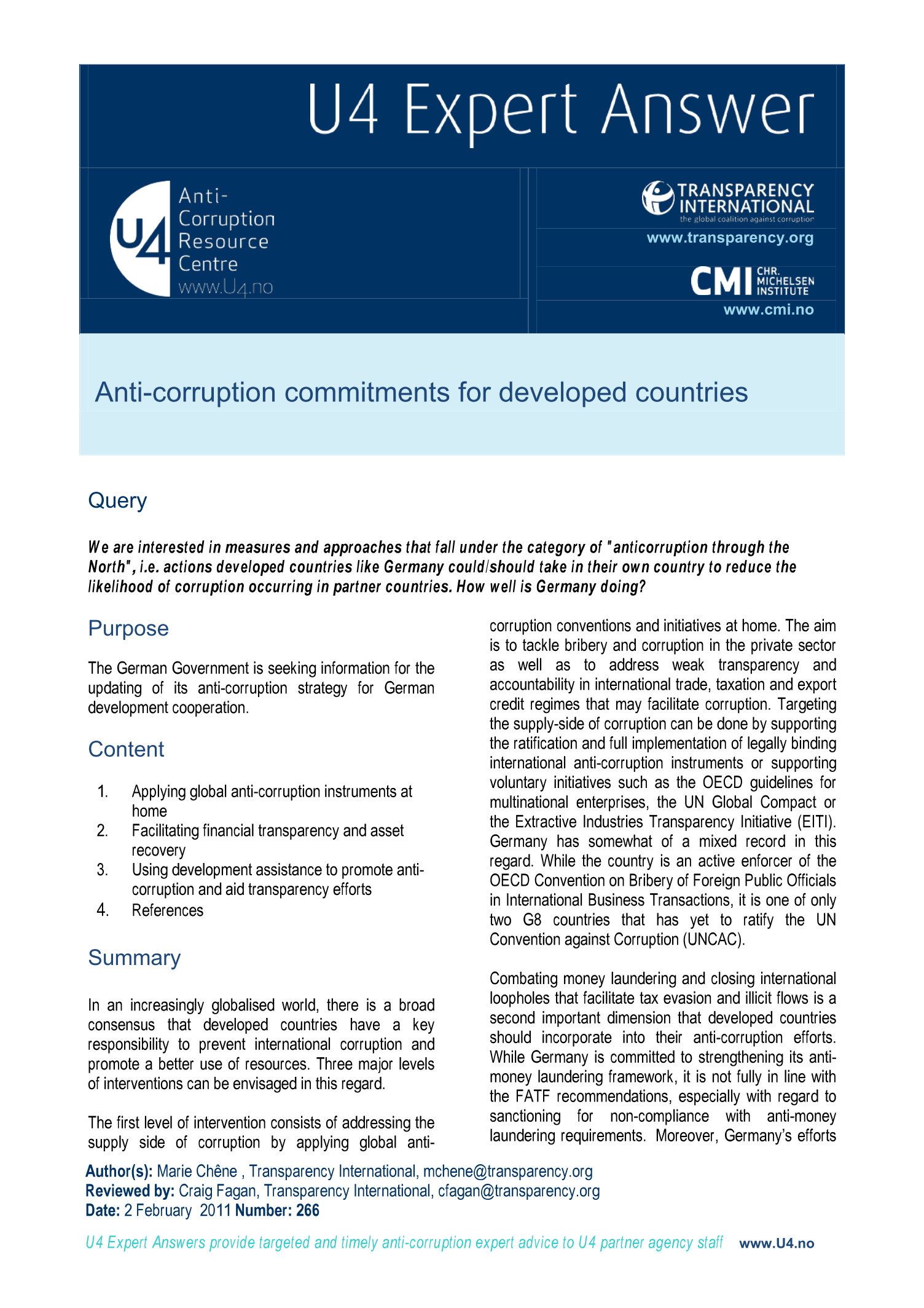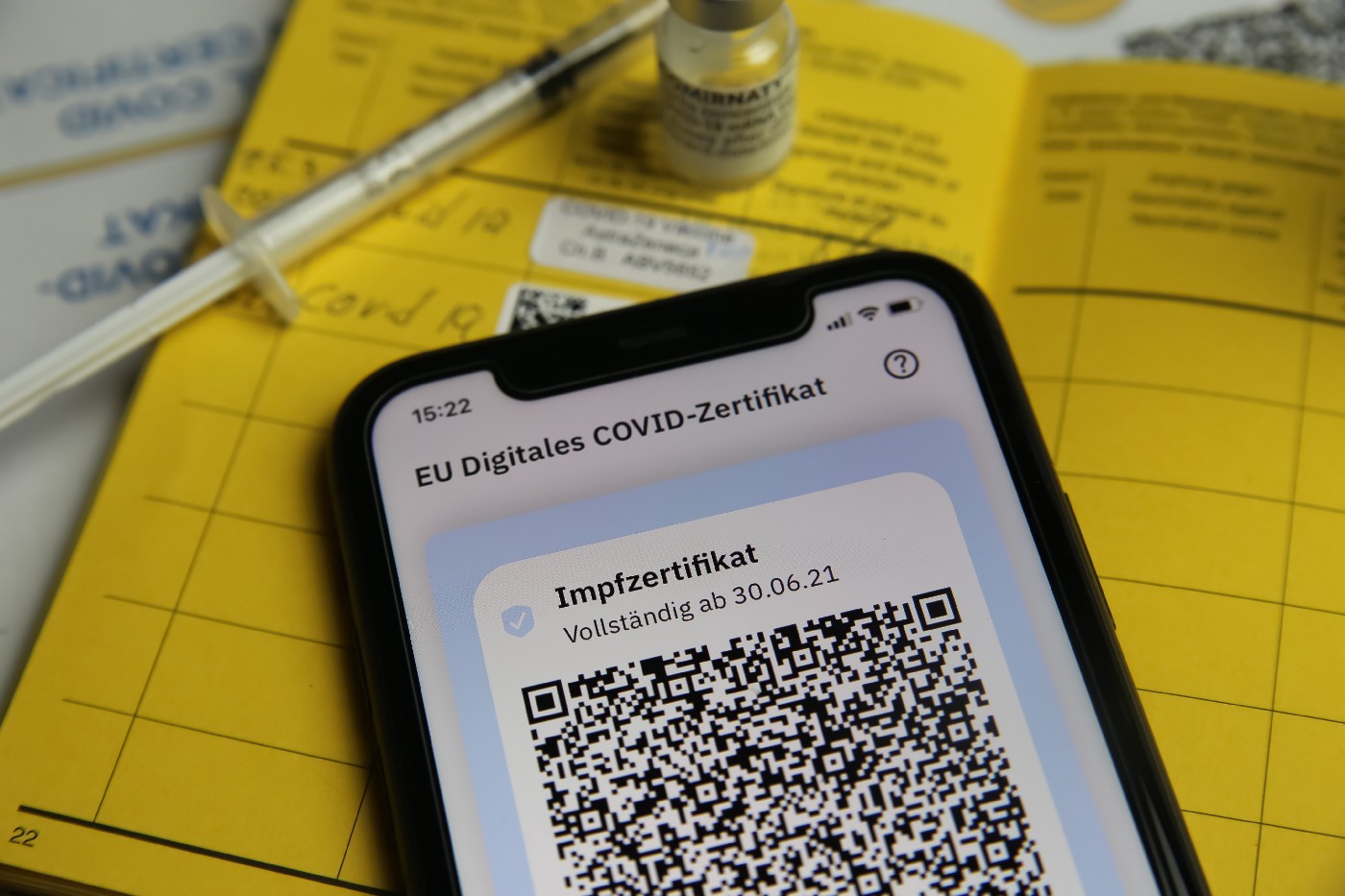U4 Helpdesk Answer
Anti-corruption commitments for developed countries
In an increasingly globalised world, there is a broad consensus that developed countries have a key responsibility to prevent international corruption and promote a better use of resources. Three major levels of interventions can be envisaged in this regard. The first level of intervention consists of addressing the supply side of corruption by applying global anti-corruption conventions and initiatives at home. The aim is to tackle bribery and corruption in the private sector as well as to address weak transparency and accountability in international trade, taxation and export credit regimes that may facilitate corruption. Targeting the supply-side of corruption can be done by supporting the ratification and full implementation of legally binding international anti-corruption instruments or supporting voluntary initiatives such as the OECD guidelines for multinational enterprises, the UN Global Compact or the Extractive Industries Transparency Initiative (EITI). Germany has somewh

Cite this publication
Chêne, M. (2011) Anti-corruption commitments for developed countries . Bergen: U4 Anti-Corruption Resource Centre, Chr. Michelsen Institute (U4 Helpdesk Answer null)
Disclaimer
All views in this text are the author(s)’, and may differ from the U4 partner agencies’ policies.
This work is licenced under a Creative Commons Attribution-NonCommercial-NoDerivatives 4.0 International licence (CC BY-NC-ND 4.0)


